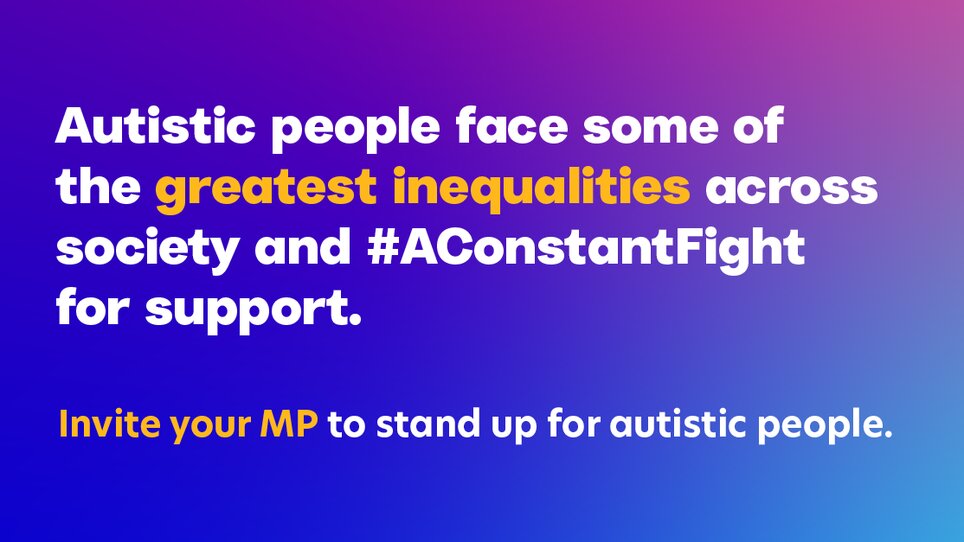
A Constant Fight
On 23rd January, the National Autistic Society hosted an event in Parliament to highlight to MPs that autistic people are facing daily battles to get the support they need. MPs heard directly from autistic people and received a copy of our report: A Constant Fight.
It’s time for MPs to step in, stand up for us, and stop the need to fight and struggle for support.

It’s a fight to get the right diagnosis.
The diagnostic process for autism is the first battle for many autistic people.
- Currently, 204,876 people are waiting for an autism assessment.
- Nearly 9 in 10 people wait longer than the recommended three months before being assessed.
- Many people wait years. In some areas, people can’t even get on a waiting list.
It’s a fight to get support at school.
A strong education is the best possible start in life and, currently, autistic pupils are being left behind.
- More than one in four parents wait over three years to receive support for their child.
- Autistic pupils are more than twice as likely to be excluded as non-SEND students.
- Sometimes families have to attend tribunals to get the right support for their child. 98% of SEND tribunal cases are resolved in favour of parents.
It’s a fight to get a job.
Most autistic people can and want to work, but face countless barriers when applying for a job, trying to stay in work, or progress our careers.
- Only 3 in 10 autistic people are in work, the lowest of any disability.
- Autistic employees had the largest pay gap of any group of disabled people in the UK.
It’s a fight to get mental health support.
The constant struggle to get your needs met in a society that isn’t set up for you can have devastating mental health implications.
- 82% of autistic people say getting mental health support took too long and 77% of autistic adults reach crisis point while waiting for the right community care.
- The lack of community care means autistic people are held inappropriately in hospital and struggle to leave. Despite Government targets, the number of autistic people without a learning disability detained in mental health hospitals has increased by 117% since 2015.
- The average length of stay in these hospitals is 4.8 years.
It’s a fight to access the healthcare you need.
Autistic people experience some of the greatest health inequalities in society.
- 80% of autistic adults report difficulty visiting a GP
- Autism doesn’t contribute to reduced life expectancy, but autistic people die around six years earlier than the general public.
